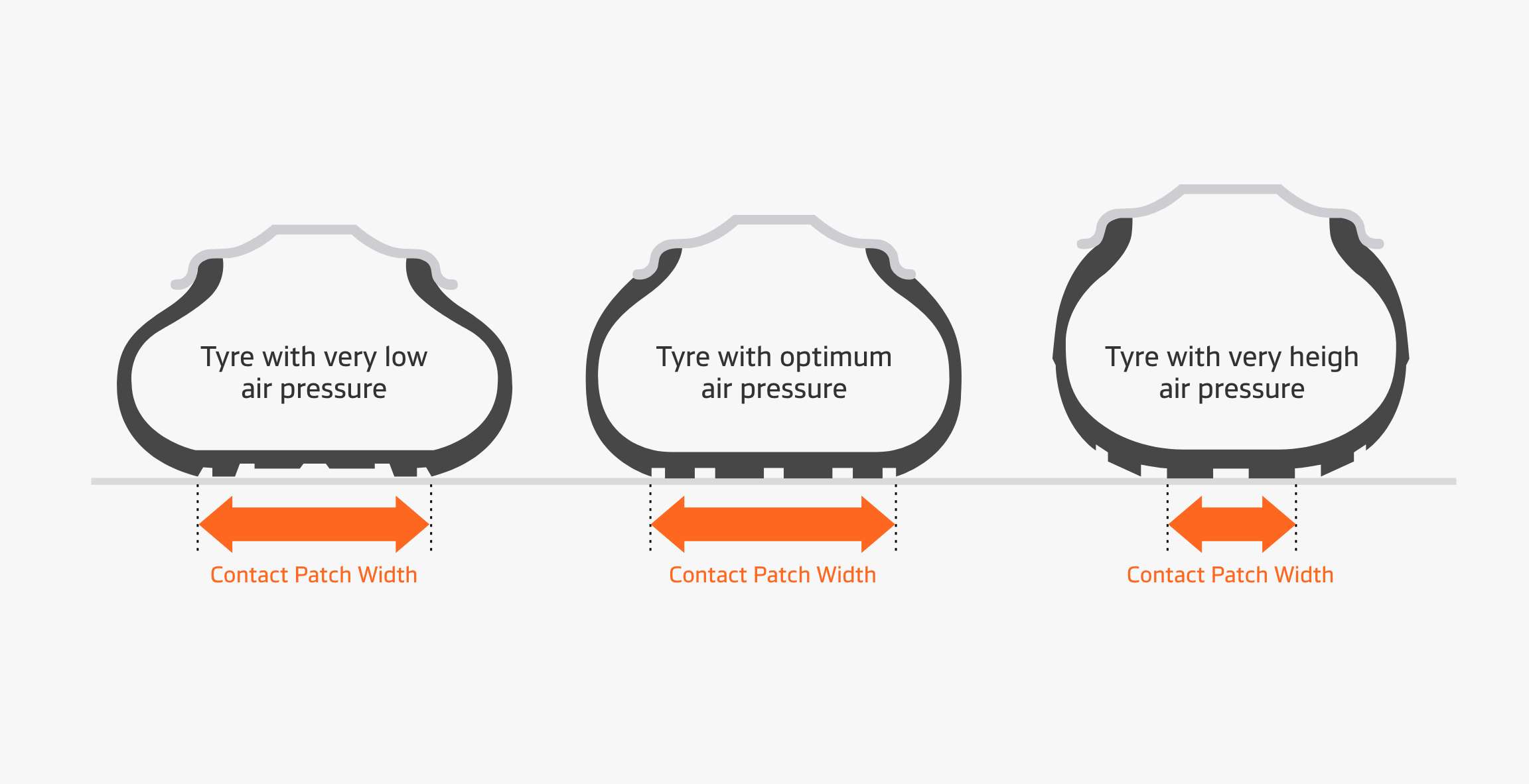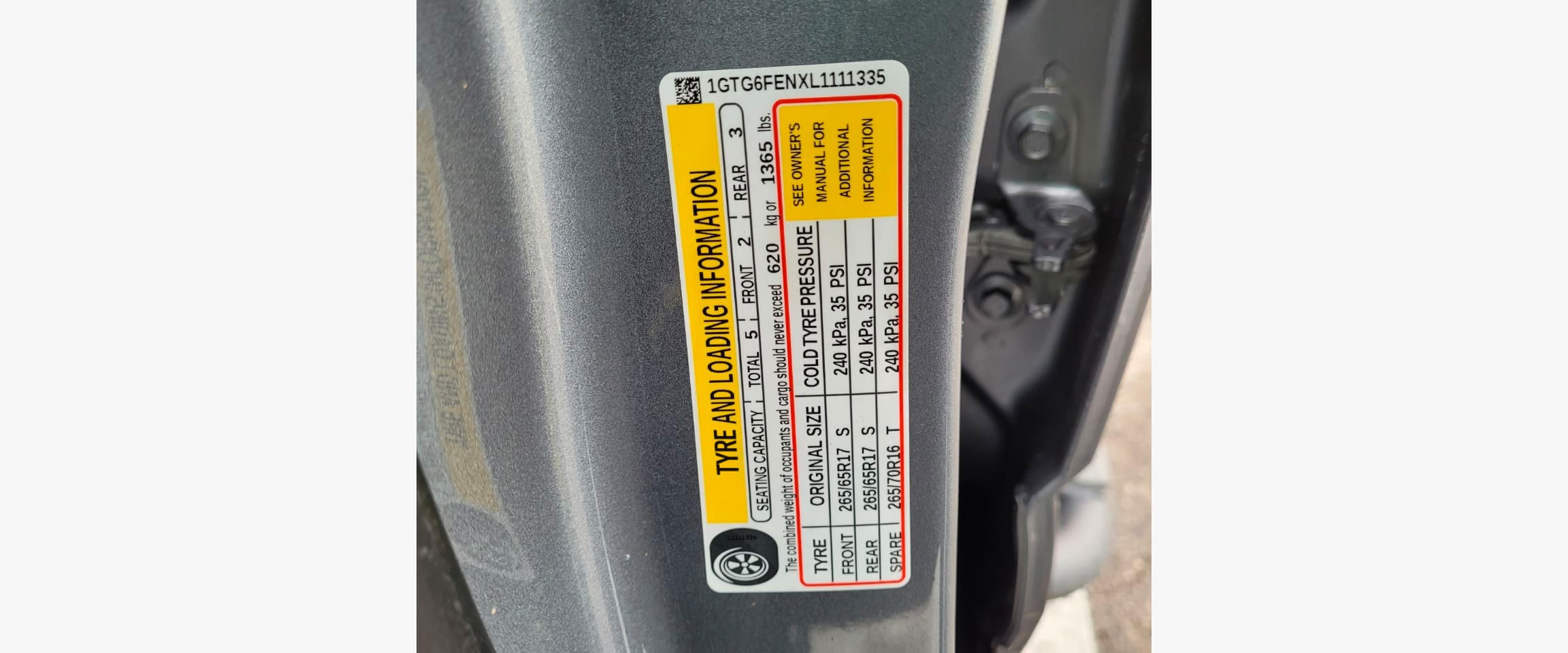
Care Guide
Tyre Pressure
The tyre inflation pressure is directly related to safety therefore must be checked regularly as correct maintenance can prolong the lifespan of the tyres. Learn more about the importance of tyre inflation pressure and how to check the pressure of your tyres below.
Importance of Tyre Pressure
-
Optimum air pressure should be maintained to ensure safety, driving performance, tyre life and fuel cost.
-
Tyres have been known to lose up to one pound per square inch (psi) every month. It is important to check all tyres, even the spare, at least once a month or before a long trip.
-
Tyre pressures should be checked at least once each month and before every long-distance trip.

Tyre pressure and tyre life
Tyre Pressure Status
-
Low air pressure: It causes the contact patch width to increase, which results in excessive force on the either edge of the tread. Outer abrasion can damage each part of the tyre. It also contributes to an increased slope of the sidewall compared to that of optimum air pressure, which can be dangerous.
-
High air pressure: Due to the inflated shape of the tyre, like a balloon, the force is focused at the center. The resulting uneven force across the contact patch becomes the cause of irregular tread wear.

Checking for Optimum Tyre Pressure
-
Hankook recommends that you check your tyre pressure once each month.
The optimum air pressure level for your tyre can befound in the sill of the driver's door, inside the fuel tank flap or in the car manual (the location of the sticker can vary according to vehicle manufacturer).
The number on the tyre sidewall means maximum tyre pressure. Therefore, do not apply tyre pressure above it.

Driver’s side door
How to Check Tyre Pressure
-
Step 1
Purchase a certified air pressure gauge or take your vehicle to a nearby garage or fuel station for a check-up.
-
Step 2
Tyres must be checked in a “cold” state (at least three hours after driving).
-
Step 3
Insert the gauge into the valve.
-
Step 4
Compare the measured air pressure level with the level listed on the car door.
* If the measured figure is higher release air until the figure matches what is listed on the car door.
* If the measured figure is lower insert more air until the figure matches what is listed on the car door.

